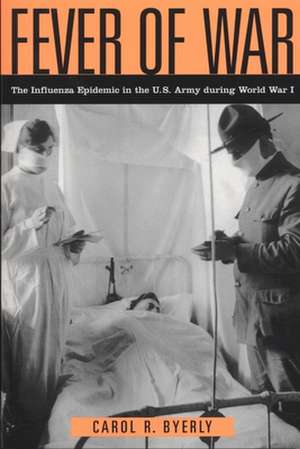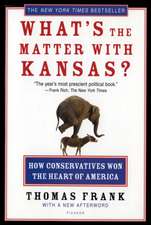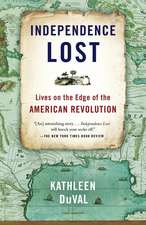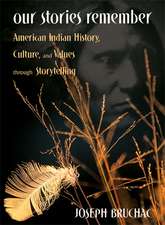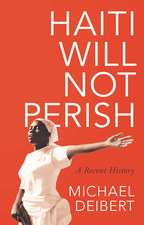Fever of War – The Influenza Epidemic in the U.S. Army during World War I
Autor Carol R Byerlyen Limba Engleză Hardback – 4 apr 2005
| Toate formatele și edițiile | Preț | Express |
|---|---|---|
| Paperback (1) | 241.64 lei 6-8 săpt. | |
| MI – New York University – 4 apr 2005 | 241.64 lei 6-8 săpt. | |
| Hardback (1) | 525.26 lei 6-8 săpt. | |
| Wiley – 4 apr 2005 | 525.26 lei 6-8 săpt. |
Preț: 525.26 lei
Preț vechi: 682.15 lei
-23% Nou
Puncte Express: 788
Preț estimativ în valută:
100.51€ • 105.22$ • 83.16£
100.51€ • 105.22$ • 83.16£
Carte tipărită la comandă
Livrare economică 05-19 aprilie
Preluare comenzi: 021 569.72.76
Specificații
ISBN-13: 9780814799239
ISBN-10: 081479923X
Pagini: 252
Ilustrații: Photos
Dimensiuni: 152 x 229 x 15 mm
Greutate: 0.48 kg
Editura: Wiley
ISBN-10: 081479923X
Pagini: 252
Ilustrații: Photos
Dimensiuni: 152 x 229 x 15 mm
Greutate: 0.48 kg
Editura: Wiley
Recenzii
"<I>Fever of War</I> adds an important dimension to knowledge of the influenza pandemic of 1918-1919."<BR>—David Killingray, Goldsmiths College, University of London ”It is a must read for anyone interested in military or health care history.”—<I>Nursing History Review</I><B>Fever of War</B> is well written, meticulously researched, and poses much food for thought.”<BR>&$151;<I>On Point</I> "Prof. Byerly's superb research and writing bring to life an event that held the world in its terrible grasp for more than a year. Compelling and enlightening, <I>Fever of War</I> is well worth the reading."<BR>—<I>Armchair General Magazine</I> "This is a well-written, well-researched book that generally statys tightly on topic"—H-War<BR> "Byerly's book provides a wealth of fascinating detail. Everyone with an interest in the 1918-19 pandemic will profit from reading it"—Journal of the History of Medicine<BR> "A significant contribution to both military, social, and medical history. . . . Fills a void and provides a valuable corrective to a literature that ignored the role of the army in creating conditions that maximized mortality, glorified the role of the military, and provided explanations that shifted responsibility to individual and racial susceptibilities."<BR>—<I>American Historical Review</I> "In this lucid, well-focused book, Byerly (Univ. of Colorado) examines the 1918 influenza pandemic as experienced by the American Expeditionary Force. In writing this important analysis, Byerly joins scholars such as Alfred Crosby, whose classic study America's Forgotten Pandemic: The Influenza of 1918 remains the benchmark, and John Barry, whose The Great Influenza: The Epic Story of the Deadliest Plague in History focuses on the role of public health. Byerly's prose is exceptionally clear and elegant. Highly recommended."<BR>—<I>Choice</I> ”<I> Fever of War</I> is handsome, readable, and extensively researched.”<BR>—JAMA "In this era of threats of anthrax, smallpox, SARS, and bird flue, are we any less assured of our ability to conquer disease than the generation of 1918? Perhaps Byerly's account of the great influenza epidemic is a clarion call to wake us from our own hubris."<BR>—<I>Military Review</I> "Byerly’s book provides a wealth of fascinating detail. Everyone with an interest in the 1918–19 pandemic will profit from reading it.”<BR>—<I>Journal of the History of Medicine and Allied Sciences</I> "…a significant contribution to both military, social, and medical history….fills a void and provides a valuable corrective to a literature that ignored the role of the army in creating conditions that maximized mortality, glorified the role of the military, and provided explanations that shifted responsibility to individual and racial susceptibilities.”—<I>American Historical Review</I> "<I>Fever of War</I> is an outstanding addition to the literature on U.S. participation in World War I . . . based on exhaustive research and thorough engagement with the published scholarship in medical, military, and social history. An important book whose fluently written exposition is well balanced between rigorous analysis and sensitive attention to the human beings--doctors and victims alike--who worked and suffered through the pandemic."<BR>—Robert H. Zieger, author of <I>America's Great War: The American Experience in World War I</I> "<I>Fever of War</I> is handsome, readable, and extensively researched...It is a well-priced and wonderful addition to the historical literature and highly recommended to anyone with an interest in the influenza pandemic of 1918-1919."<BR>—Burke A. Cunha, MD, <I>The Journal of the American Medical Association</I> "<I>Fever of War</I> makes a powerful argument. One cannot walk away from the book without grasping the significant, tragic impact of influenza on U.S. troops in WWI, and how difficult that impact was for the nation's citizens to bear." —<I>Boulder Daily Camera</I>
"Fever of War adds an important dimension to knowledge of the influenza pandemic of 1918-1919." --David Killingray, Goldsmiths College, University of London "It is a must read for anyone interested in military or health care history."-Nursing History ReviewFever of War is well written, meticulously researched, and poses much food for thought." --On Point "Prof. Byerly's superb research and writing bring to life an event that held the world in its terrible grasp for more than a year. Compelling and enlightening, Fever of War is well worth the reading." --Armchair General Magazine "This is a well-written, well-researched book that generally statys tightly on topic"--H-War "Byerly's book provides a wealth of fascinating detail. Everyone with an interest in the 1918-19 pandemic will profit from reading it"--Journal of the History of Medicine "A significant contribution to both military, social, and medical history... Fills a void and provides a valuable corrective to a literature that ignored the role of the army in creating conditions that maximized mortality, glorified the role of the military, and provided explanations that shifted responsibility to individual and racial susceptibilities." --American Historical Review "In this lucid, well-focused book, Byerly (Univ. of Colorado) examines the 1918 influenza pandemic as experienced by the American Expeditionary Force. In writing this important analysis, Byerly joins scholars such as Alfred Crosby, whose classic study America's Forgotten Pandemic: The Influenza of 1918 remains the benchmark, and John Barry, whose The Great Influenza: The Epic Story of the Deadliest Plague in History focuses on the role of public health. Byerly's prose is exceptionally clear and elegant. Highly recommended." --Choice " Fever of War is handsome, readable, and extensively researched." --JAMA "In this era of threats of anthrax, smallpox, SARS, and bird flue, are we any less assured of our ability to conquer disease than the generation of 1918? Perhaps Byerly's account of the great influenza epidemic is a clarion call to wake us from our own hubris." --Military Review "Byerly's book provides a wealth of fascinating detail. Everyone with an interest in the 1918-19 pandemic will profit from reading it." --Journal of the History of Medicine and Allied Sciences "...a significant contribution to both military, social, and medical history...fills a void and provides a valuable corrective to a literature that ignored the role of the army in creating conditions that maximized mortality, glorified the role of the military, and provided explanations that shifted responsibility to individual and racial susceptibilities."--American Historical Review "Fever of War is an outstanding addition to the literature on U.S. participation in World War I ... based on exhaustive research and thorough engagement with the published scholarship in medical, military, and social history. An important book whose fluently written exposition is well balanced between rigorous analysis and sensitive attention to the human beings--doctors and victims alike--who worked and suffered through the pandemic." --Robert H. Zieger, author of America's Great War: The American Experience in World War I "Fever of War is handsome, readable, and extensively researched...It is a well-priced and wonderful addition to the historical literature and highly recommended to anyone with an interest in the influenza pandemic of 1918-1919." --Burke A. Cunha, MD, The Journal of the American Medical Association "Fever of War makes a powerful argument. One cannot walk away from the book without grasping the significant, tragic impact of influenza on U.S. troops in WWI, and how difficult that impact was for the nation's citizens to bear." --Boulder Daily Camera
"Fever of War adds an important dimension to knowledge of the influenza pandemic of 1918-1919." --David Killingray, Goldsmiths College, University of London "It is a must read for anyone interested in military or health care history."-Nursing History ReviewFever of War is well written, meticulously researched, and poses much food for thought." --On Point "Prof. Byerly's superb research and writing bring to life an event that held the world in its terrible grasp for more than a year. Compelling and enlightening, Fever of War is well worth the reading." --Armchair General Magazine "This is a well-written, well-researched book that generally statys tightly on topic"--H-War "Byerly's book provides a wealth of fascinating detail. Everyone with an interest in the 1918-19 pandemic will profit from reading it"--Journal of the History of Medicine "A significant contribution to both military, social, and medical history... Fills a void and provides a valuable corrective to a literature that ignored the role of the army in creating conditions that maximized mortality, glorified the role of the military, and provided explanations that shifted responsibility to individual and racial susceptibilities." --American Historical Review "In this lucid, well-focused book, Byerly (Univ. of Colorado) examines the 1918 influenza pandemic as experienced by the American Expeditionary Force. In writing this important analysis, Byerly joins scholars such as Alfred Crosby, whose classic study America's Forgotten Pandemic: The Influenza of 1918 remains the benchmark, and John Barry, whose The Great Influenza: The Epic Story of the Deadliest Plague in History focuses on the role of public health. Byerly's prose is exceptionally clear and elegant. Highly recommended." --Choice " Fever of War is handsome, readable, and extensively researched." --JAMA "In this era of threats of anthrax, smallpox, SARS, and bird flue, are we any less assured of our ability to conquer disease than the generation of 1918? Perhaps Byerly's account of the great influenza epidemic is a clarion call to wake us from our own hubris." --Military Review "Byerly's book provides a wealth of fascinating detail. Everyone with an interest in the 1918-19 pandemic will profit from reading it." --Journal of the History of Medicine and Allied Sciences "...a significant contribution to both military, social, and medical history...fills a void and provides a valuable corrective to a literature that ignored the role of the army in creating conditions that maximized mortality, glorified the role of the military, and provided explanations that shifted responsibility to individual and racial susceptibilities."--American Historical Review "Fever of War is an outstanding addition to the literature on U.S. participation in World War I ... based on exhaustive research and thorough engagement with the published scholarship in medical, military, and social history. An important book whose fluently written exposition is well balanced between rigorous analysis and sensitive attention to the human beings--doctors and victims alike--who worked and suffered through the pandemic." --Robert H. Zieger, author of America's Great War: The American Experience in World War I "Fever of War is handsome, readable, and extensively researched...It is a well-priced and wonderful addition to the historical literature and highly recommended to anyone with an interest in the influenza pandemic of 1918-1919." --Burke A. Cunha, MD, The Journal of the American Medical Association "Fever of War makes a powerful argument. One cannot walk away from the book without grasping the significant, tragic impact of influenza on U.S. troops in WWI, and how difficult that impact was for the nation's citizens to bear." --Boulder Daily Camera
Notă biografică
Carol R. Byerly worked for the United States Congress and the American Red Cross, taught history at the University of Colorado, and was a research scholar of military medical history for the Office of the Surgeon General of the United States Army.
